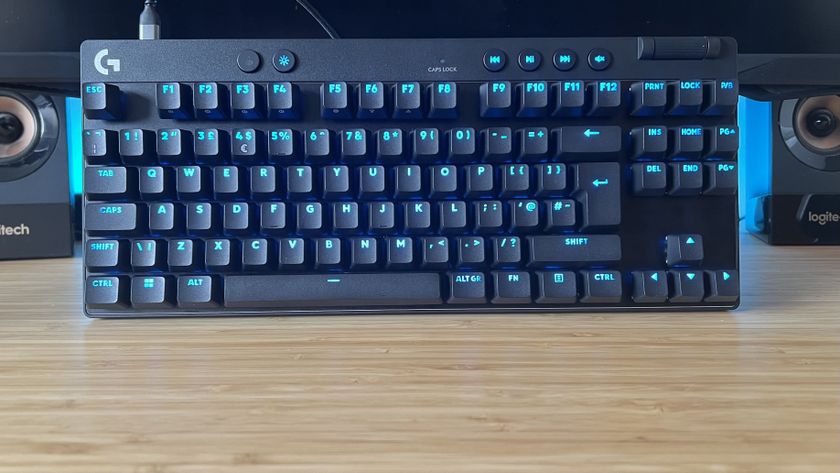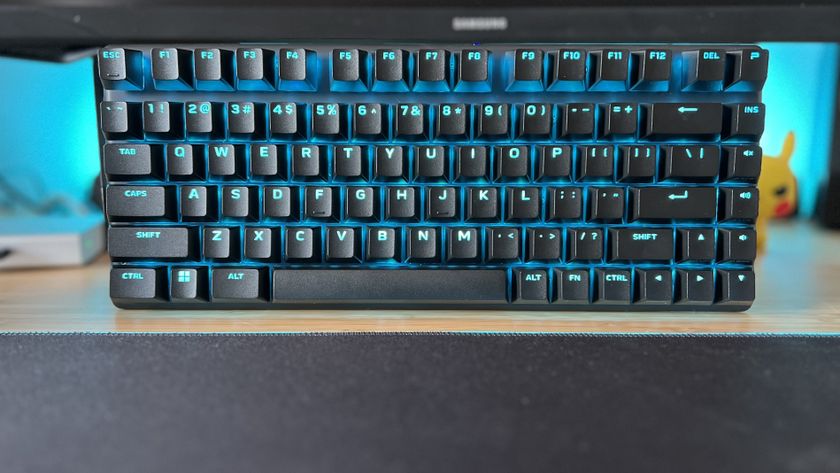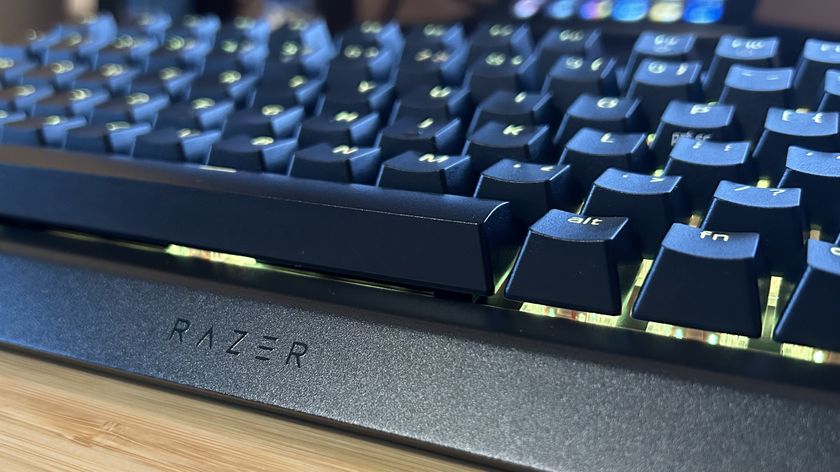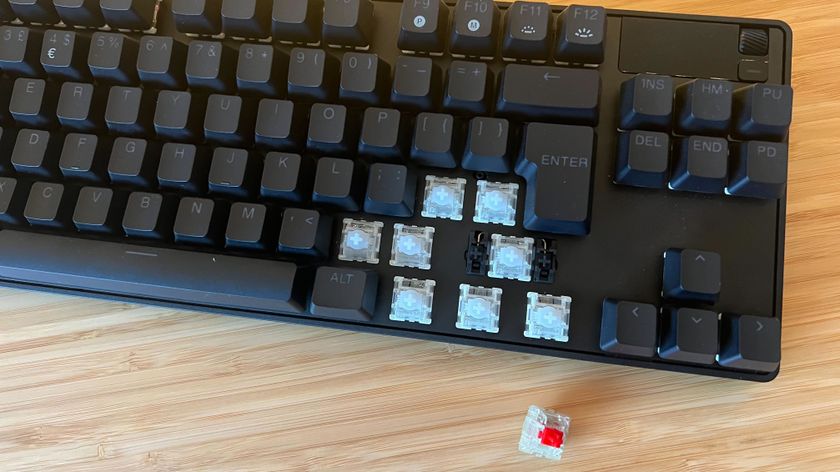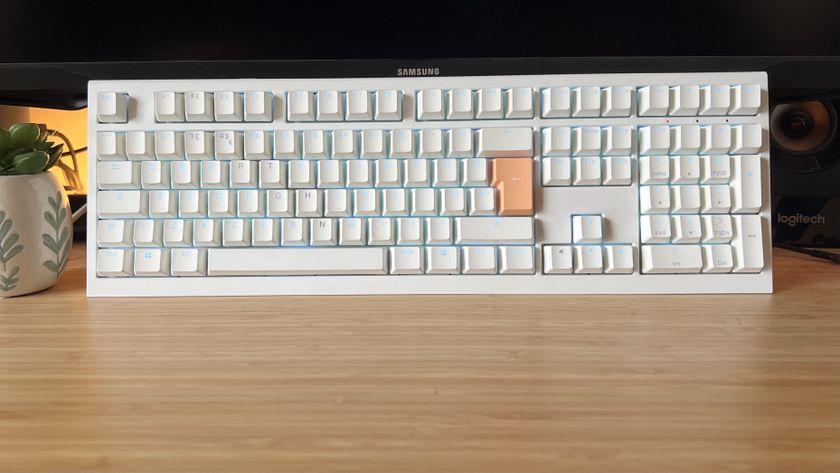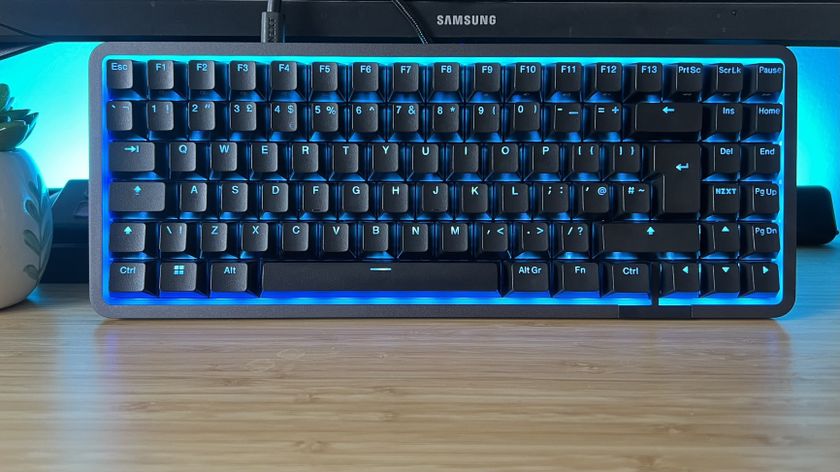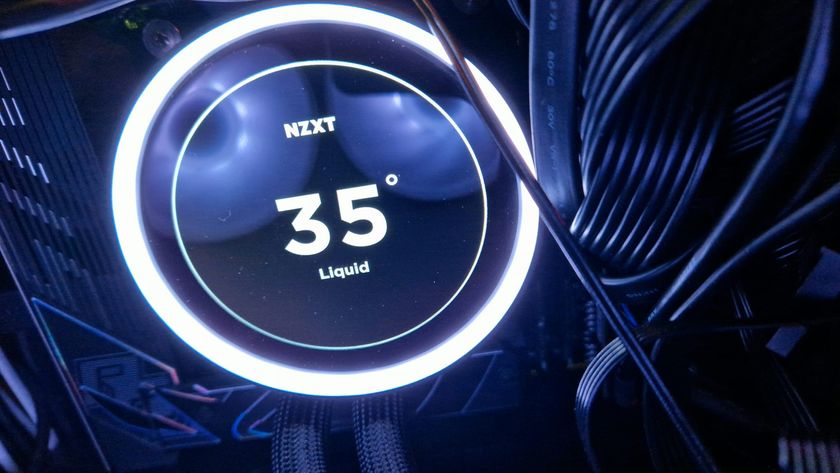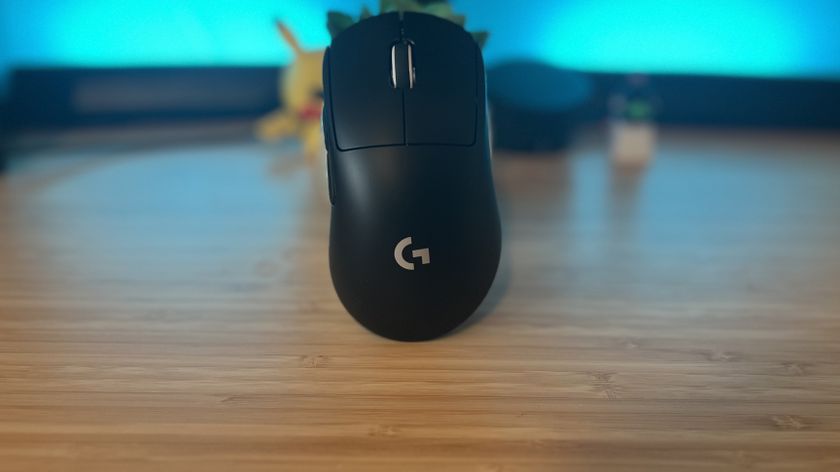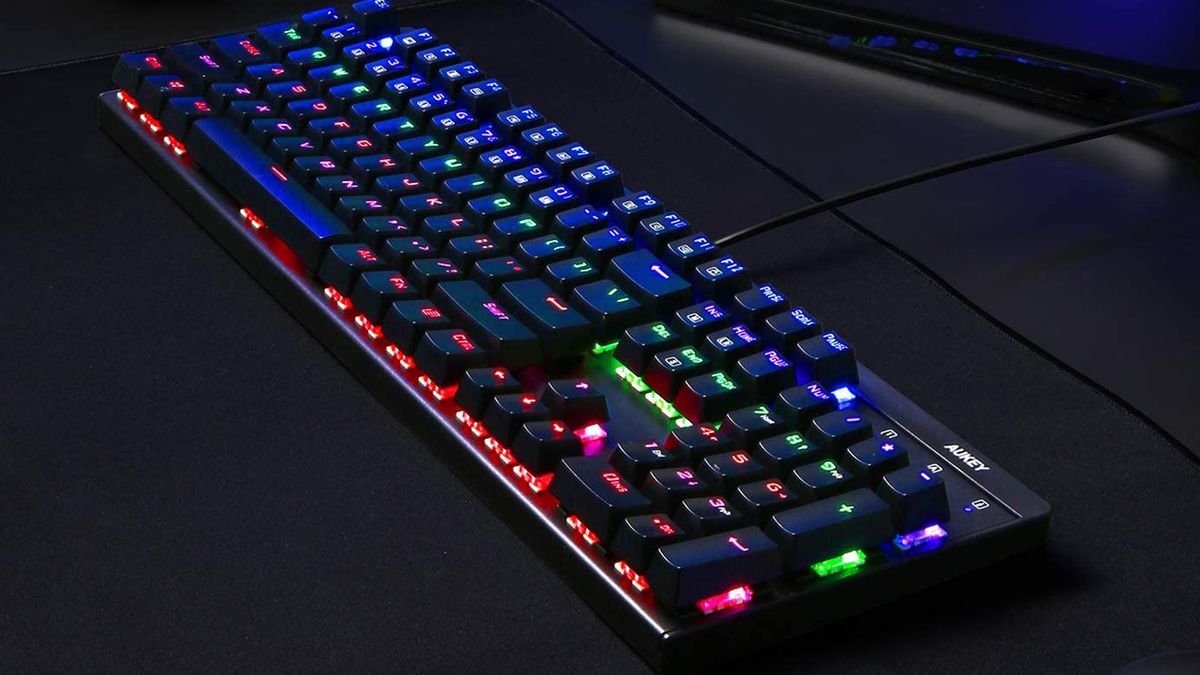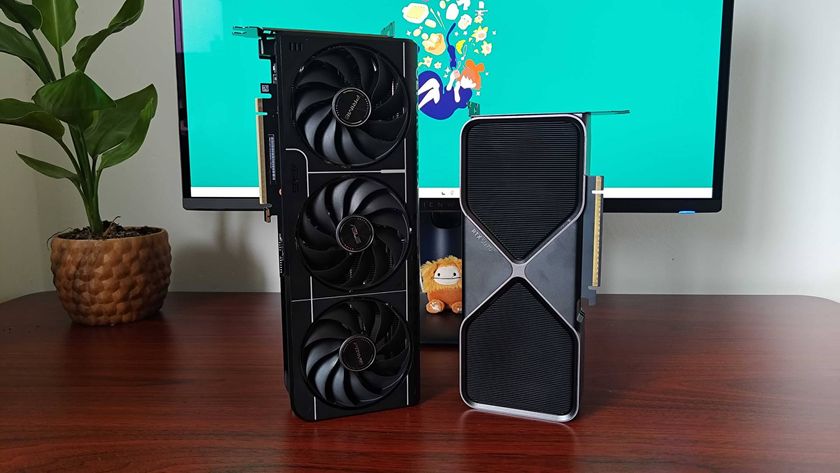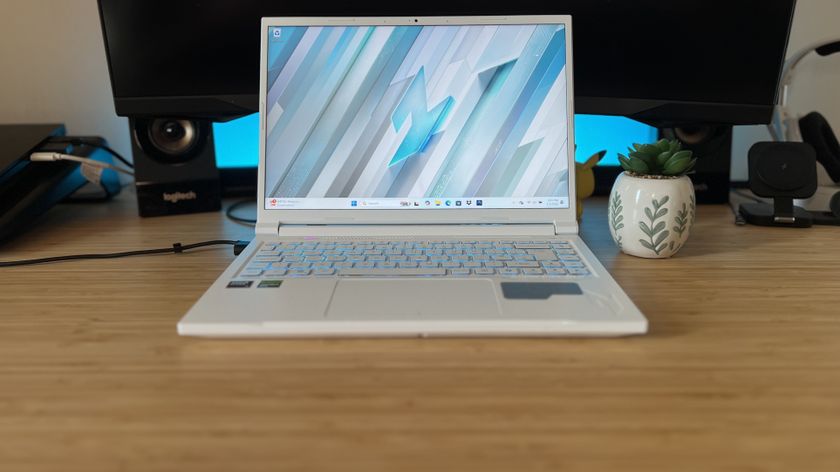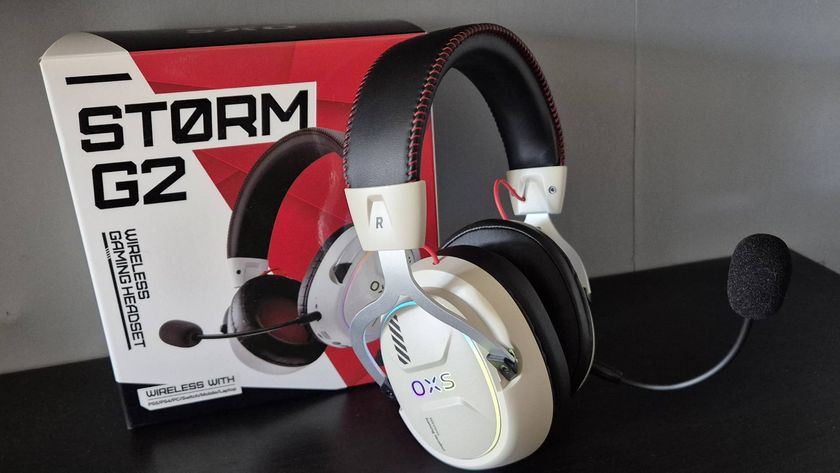12DOVE Verdict
The Aukey KM-G6 is a solid budget keyboard perfect for anyone obsessed with clicky key feedback.
Pros
- +
Sensible price point
- +
Outemu blue switches feel fantastic
- +
Fun retro stylings
Cons
- -
Keystrokes are noisy
- -
Lacklustre lighting effects
- -
No USB passthrough or dedicated media keys
Why you can trust 12DOVE
It’s not often that the box of a new keyboard makes me smile, but that’s what Aukey managed when the (very affordable) Aukey KM-G6 arrived on my doorstep. It's a cardboard rectangle in the perfect tint of retro beige, with a simple lineart image of the product inside stencilled on the top. You love to see it.
Those retro stylings don’t stop with the packaging, either. Unboxing the Aukey KM-G6’s robust plastic body and having a play with those wonderfully clicky blue key switches instantly transports me back to every high-school computer lab I ever sat in, ignoring the teacher and playing cool math games.
Fortunately, the performance matches that nostalgia. The KM-G6 is a respectable piece of kit, and one of the best gaming keyboards if you're on a budget.
Features

Switch Type: Outemu Blue Clicky Mechanical Switch
Switch Durability: 50 million presses
Media Keys: Integrated w/ function keys
Connection: Single USB 2.0
Battery Life: N/A
Wrist-rest: N/A
Dimensions: 5.3 x 17.0 x 1.5 inches
Let’s get one thing out of the way: the Aukey KM-G6 uses Outemu Blue mechanical switches. For those not up to speed with their key switch colors, a blue stem means that the switch is ‘clicky’ - that is to say, it clicks audibly when you depress it far enough to hit the actuation point and register any input.
Let’s break down the pros and cons. Blue switches are easily the noisiest mechanical key switches available, causing a serious clattering clamour when in use. They provide excellent physical feedback though; that audible ‘click’ lets you know you’ve hit the key, and the Outemu Blues requires a good amount of pressure to register input.
Blue switches are generally considered to be better for typists than gamers, but if you prefer more tactile feedback when gaming, the Aukey KM-G6 has got you covered. The ‘clicky’ nature of the keys also helps to eliminate ghosting by cutting down on accidental key-presses.
Other than that, there’s not much to write home about here. The KM-G6 only costs forty bucks, so we didn’t expect much. No USB passthrough, no separate media keys or scroll wheel. It’s a bit basic, in other words.
Yet it’s still good value. While I’d usually recommend Cherry MX switches for any mechanical keyboard, the Outemu Blues are still rated for a solid 50 million keypresses.
Design
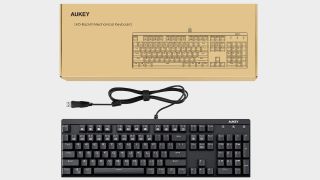
Visually, this keyboard is nothing if not minimalist. At first glance it could be any keyboard from any underfunded public school, painted black and stuffed full of LEDs, but it’s certainly better quality than that.
What's more, the outer casing of the KM-G6 feels durable despite the low price. While most of the keyboard is plastic (including the double-shot molded keycaps), the upper panel is a single metal plate that appears particularly sturdy. It’s also listed as ‘water-resistant’, but we didn’t put that to the test.
The lighting does leave a little to be desired, though; it’s not true addressable RGB, but rather a row of single-color LEDs under each row of keys. More specifically, the top row of keys will always be blue, the row beneath can only be purple, and so on. There’s a handful of pre-set animation patterns that can be activated via key combinations, but they’re not too impressive. These LEDs also aren’t particularly bright, but we can only expect so much from a keyboard at this low price-point.
Performance
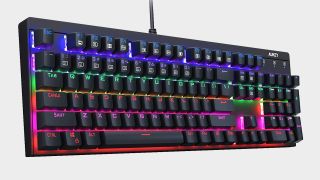
As predicted, these blue key switches do feel great for typing. Physical response feels snappy with every key press, and I had mis-types down to a minimum after a brief adjustment period. And although it is just as noisy as I expected, the Outemu Blue switches actually have a pleasingly deep click.
In the gaming arena, the KM-G6 didn’t perform quite so well. Yes, ghosting was all but eliminated in everything I played, but the clicky keys felt sluggish in shooters, racers, and fighting games. After a particularly heated ranked match in Apex Legends, my fingers actually ached from the effort I was expending to rapidly strafe so I didn’t get shot in the head.
Strategy games and MMORPGs were a slightly different story. When you have numerous actions all tied to single key presses, a single accidental press can be ruinous. Knowing for certain whether I’d clicked the button purely from auditory feedback felt good, although years of using linear red switches has taught me that I can live without it.
Overall, then, the Aukey KM-G6 isn’t perfect by any means. But at $40 / £40, it’s hard not to like it. Of course, if you already know that clicky blue keys aren’t for you, then you’re not likely to enjoy it - and I’m impressed you kept reading for this long - but if you haven’t used them before, the KM-G6 is a good starting point. Better than dropping more cash on a pricier keyboard, anyway.
So: if you’re a clicky aficionado on the lookout for a new keyboard that won’t break the bank, I’d heartily recommend the KM-G6. If you’ve got a bit more cash to spare and you urgently need proper per-key RGB, Aukey also offers the KM-G3 (which packs the same Outemu Blue key switches), but, as a budget keyboard, the KM-G6 is more than good enough.
Christian is a writer for Maximum PC, but also writes in a freelance capacity for a number of other sites including GamesRadar, PC Gamer, and TechRadar. He knows the PC gaming space inside out, particularly when it comes to hardware including PC builds, keyboards, and other peripherals.
